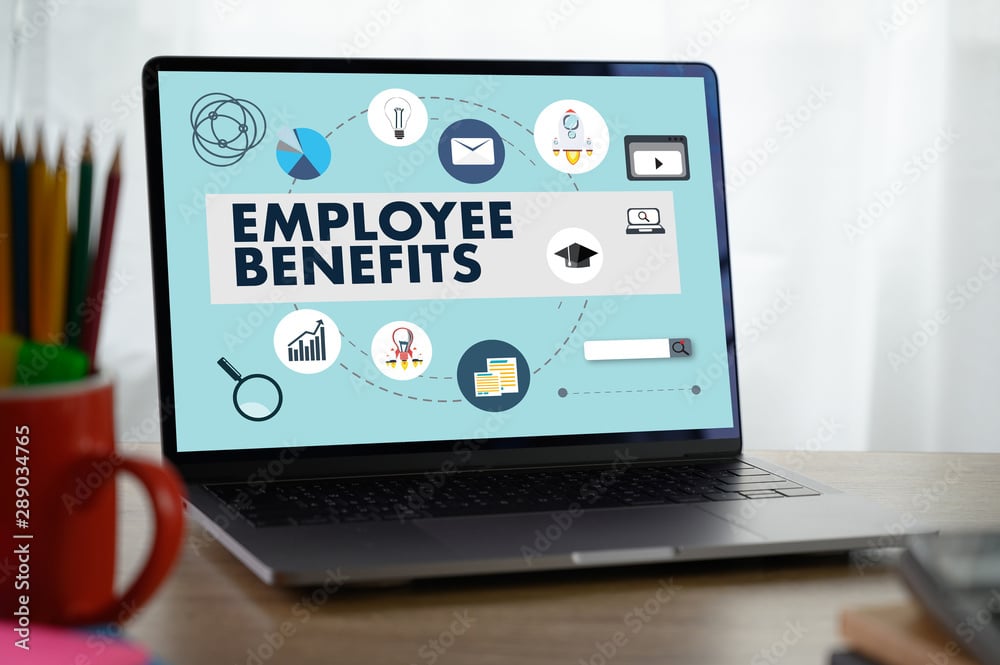The relationship between employees and companies is in the middle of a fundamental transformation — and this transformation will only gain momentum in 2025. Employees are demanding to be treated as unique individuals with their own concerns, financial goals, and professional aspirations. They want holistic support that covers everything from work-life balance to financial well-being. They’re no longer satisfied with one-size-fits-all benefits that treat them as interchangeable with their colleagues.
While these shifting expectations put significant pressure on HR teams to adapt, they also hold the promise of healthier and more sustainable relationships between companies and their employees. When HR teams are more responsive to employees’ needs and priorities, they will earn trust, increase engagement, and improve retention. At a time when HR teams are confronting issues such as widening skills gaps, fierce competition for talent, and employee disengagement, a commitment to personalized and comprehensive benefits will provide a major competitive advantage.
Benefits should encompass the whole person — including family. They should help employees strike the right balance between their professional and personal lives, and they should provide the flexibility necessary to meet the needs of diverse workforces. In 2025, the most successful HR teams will take greater responsibility for employees’ well-being. This means offering customized benefits that will help them take care of their physical and mental health, improve their financial circumstances, and plan for the future.
Abandoning One-Size-Fits-All Benefits
The modern workplace has undergone sweeping changes in recent years, but many benefits remain stuck in the past. The rapid growth of AI and automation has led to widening skills gaps at many companies and caused employees to reassess how they work. Meanwhile, the overnight shift to remote and hybrid work during the COVID-19 pandemic gave employees a taste of greater autonomy, which is one of the reasons flexibility is a top priority — even as companies focus on bringing employees back into the office.
Seventy percent of employees say they’re interested in customizable benefits. This demand is particularly urgent when common benefits like PTO are chronically underused — according to Harris, 78 percent of American workers don’t use all the time off allotted to them. This status quo is particularly frustrating for employees who live in states that don’t require companies to reimburse them for the value of unused PTO. In states that do impose this requirement, many companies accrue large unfunded liabilities that can pose a serious risk to their balance sheets.
Employees are tired of benefits that were designed for someone else. They’re telling HR teams that they want the freedom to choose their own course with benefits that are aligned with their goals. This will allow employees to focus on what matters to them, from paying off debt to making charitable contributions to saving and investing for the future.
Focusing on Holistic Employee Well-Being
While employees want greater control over their compensation and benefits, they also want support and guidance from their companies. This demand encompasses everything from professional development opportunities to financial advice. The HR teams that implement holistic benefits capable of addressing each employee’s unique concerns — from their financial situation to their physical and mental health — will demonstrate that the company cares about the well-being of all its employees.
Consider the growing emphasis on professional development. According to McKinsey, activities accounting for 30 percent of the hours worked in the United States could be automated by 2030. It’s no wonder that employees are eager to cultivate new skills that will help them respond to such immense global economic shifts — PwC found that 77 percent of employees are willing to “learn new skills now or completely retrain,” while over two-thirds say “opportunities to learn new skills are a key factor in any decision to job-switch.”
Employees aren’t just excited to learn new skills — they also want to learn how to manage their money more responsibly. Fifty-seven percent of employees say finances are their main cause of stress, and this can have a significant negative impact on everything from their mental and physical health to engagement. However, nearly three-quarters of employees also say they want help with their personal finances.
Employees are asking companies for the resources to help them adapt to a changing economy, improve their financial security, and become more productive and engaged members of the workforce. When HR teams meet this demand, everyone benefits.
Accelerating the Digital Transformation in HR
HR teams increasingly recognize the importance of flexible and holistic benefits, but they also need to be taking concrete steps toward implementing these benefits. This is why HR teams will prioritize the adoption of digital workforce management solutions in 2025. As benefits become more flexible and portable, HR teams need to have streamlined and centralized platforms in place to help employees explore and access these benefits.
The digital transformation in HR is accelerating more quickly than ever thanks to AI. According to a recent SHRM survey of HR professionals, 61 percent are optimistic about the use of AI among their employees. Learning and development is one of the top-ranked applications for AI among HR professionals that use it — from the identification of skills gaps to the creation of personalized training programs. This is yet another reminder that customization should be a core focus for HR teams in 2025. Gartner reports that 76 percent of HR leaders believe organizations will fall behind if they don’t adopt AI within the next two years.
While digital transformation is vital, it’s a means to an end. In 2025, the most important transformation for HR teams will be strategic — the shift away from the one-size-fits-all benefits of the past and toward flexible benefits that improve overall well-being for all employees.
Rob Whalen, co-founder and CEO of BNFT.
The post <strong>Why 2025 will be a Pivotal Year for Benefits</strong> appeared first on HR Daily Advisor.
